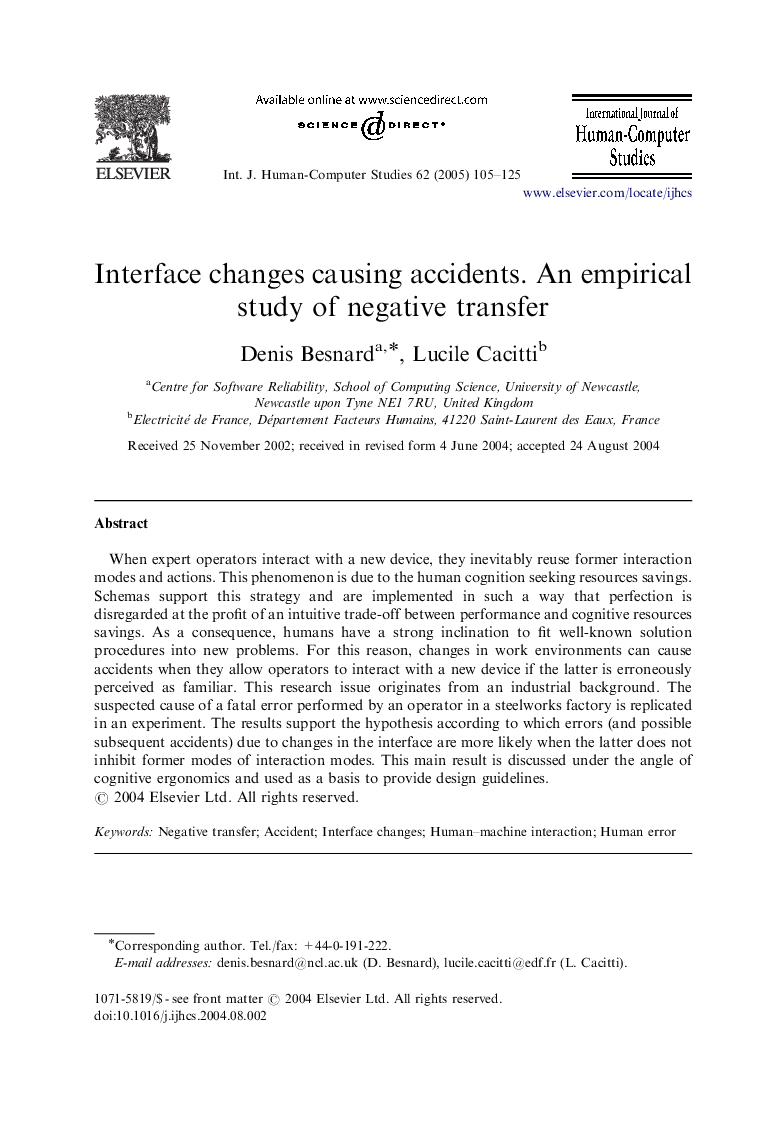| Article ID | Journal | Published Year | Pages | File Type |
|---|---|---|---|---|
| 9652543 | International Journal of Human-Computer Studies | 2005 | 21 Pages |
Abstract
When expert operators interact with a new device, they inevitably reuse former interaction modes and actions. This phenomenon is due to the human cognition seeking resources savings. Schemas support this strategy and are implemented in such a way that perfection is disregarded at the profit of an intuitive trade-off between performance and cognitive resources savings. As a consequence, humans have a strong inclination to fit well-known solution procedures into new problems. For this reason, changes in work environments can cause accidents when they allow operators to interact with a new device if the latter is erroneously perceived as familiar. This research issue originates from an industrial background. The suspected cause of a fatal error performed by an operator in a steelworks factory is replicated in an experiment. The results support the hypothesis according to which errors (and possible subsequent accidents) due to changes in the interface are more likely when the latter does not inhibit former modes of interaction modes. This main result is discussed under the angle of cognitive ergonomics and used as a basis to provide design guidelines.
Related Topics
Physical Sciences and Engineering
Computer Science
Artificial Intelligence
Authors
Denis Besnard, Lucile Cacitti,
